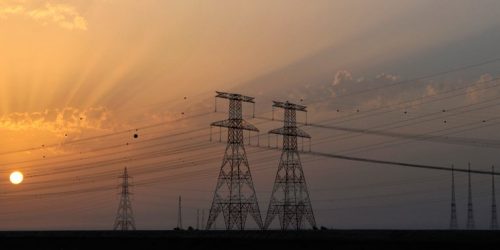ISLAMABAD:
Several questions have been raised over the privatisation of power distribution companies, which include giving monopoly rights to buyers of power firms. It is imperative that issues are addressed before moving towards successful privatisation.
These questions were raised by Special Assistant to Prime Minister on Petroleum Nadeem Babar, who was also the chairman of task force on energy.
Babar had proposed the beginning of privatisation of two distribution companies – Islamabad Electric Supply Company (Iesco) and Peshawar Electric Supply Company (Pesco). However, he added that before such a process could be initiated, some questions needed to be answered.
He inquired whether the buyer should be given monopoly rights and whether uniform tariffs should be maintained in the country?
He asked that if the government continued to give subsidy to the poor, what mode of consumer tariff would the National Electric Power Regulatory Authority (Nepra) adopt?
Babar also inquired as to what support would the buyer get from law enforcement agencies and asked about buyer rights regarding termination of staff services.
The Power Division was of the view that in line with the policy objectives to liberalise the power sector, the privatisation programme was initiated by the government.
In a bid to achieve these objectives, the Privatisation Commission appointed financial advisory experts/consortiums to undertake due diligence of public sector power enterprises, as it was met with opposition and agitation from labour unions.
It said in order to advance the privatisation process and prepare distribution companies for an appropriate privatisation structure, a road map was required to be developed and implemented with timelines.
Work needs to be done with Nepra, in particular, and also with the Power Division, Finance Division, Ministry of Privatisation, consumer groups and labour unions.
The amended Nepra Act envisages separate retail and wire business. Such provisions in the law can facilitate the privatisation of power sector entities.
The Power Division was of the view that privatisation had been attempted in the past but no research was done on various models of privatisation that could be adopted and on the complications that may arise in implementation of the plan.
It is important that the Turkish model is studied that is based on no sale of assets and a 30-year contract with a private entrepreneur against the minimum performance standards set by the government. All such distribution companies are still regulated by a government body.
As an alternative, the outsourcing of revenue collection can also be considered for the distribution companies.
According to officials, the Power Division said it would also call for examining the privatisation of KESC, now K-Electric, so “we can learn from the success and failure of the transaction”.
The Power Division said it was also to be noted that different models could be used for different distribution companies, depending on the specific circumstances.
A decision to privatise without examining these options may again meet the same fate.
The Power Division has been struggling to improve the recovery of consumer bills and reduce losses of power distribution companies.
The Power Division’s former secretary had encouraged the heads of distribution companies and a campaign was launched against the defaulters and those involved in power theft.
The effort proved successful as the recovery of consumer bills went up and losses went down that improved the financial health of distribution companies, which were the major reasons behind the growing circular debt.






